Why You Need (To Be) A Purpose-Driven CFO

By Andy Burrows
Generalisations About Finance
As I reflect on my 25+ years of working in the Finance departments of a variety of businesses, the common feeling I get is that of busyness.
Finance is a very busy function to work in. There are always deadlines. Monthly reporting. Quarterly forecasting. Annual budgeting and medium term planning. If there’s a big project, Finance is in the thick of it, called in at short notice to “pull the numbers together”. We are always firefighting. Transactions gone astray. New products to code that no-one told us about. New suppliers that need to be paid before we knew they even existed. The pace is frenetic.
And in the midst of that busyness, we forget why we do what we do.
And while investors, owners and shareholders rely on the CFO to lead the business with the CEO, by and large we’re not actually very good leaders.
We think we’re strategic thinkers, but we’re not.
I don’t say that lightly. But the reason we’re not strategic, why we’re not g...
Andy Burrows Featured on the Strength in The Numbers Show

By Andy Burrows
[First published 8th February 2018]
When Andrew Codd asked me if I'd be a guest on his new podcast, The Strength in the Numbers Show, I was excited.
I connected with Andrew on LinkedIn quite soon after starting Supercharged Finance, late in 2016. He and Anders Liu-Lindberg seemed to be having some good online discussions about Finance business partnering, which I’d already written about. And Andrew had recently published his book about the subject, The Audacious Finance Partner.
I was partly excited because I’ve never been interviewed before, except for jobs!
Networking Backwards
But the main reason for my excitement is that I’m getting a real buzz out of the connections I’ve made through Supercharged Finance.
Before the end of 2016, I was one of those who wouldn’t connect with people on LinkedIn unless I’d at least spoken to them. I’d reject random connection requests from people, or at least be suspicious, especially of recruitment consultants!
But in deciding...
The Purpose-Driven CFO Part 10: Finding purpose in the boring bits of Finance
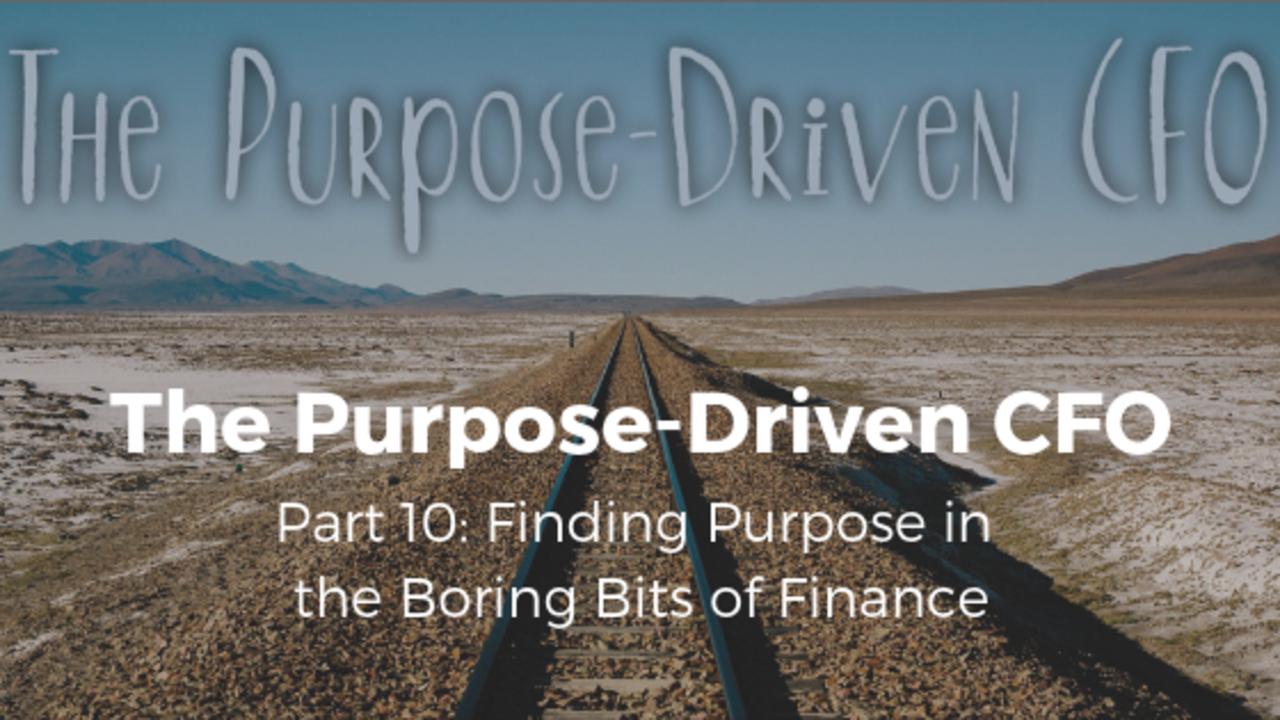
By Andy Burrows
[First published 26th December 2017]
[This article is also on LinkedIn - why not "Follow+" Andy and give the article a "like"?]
I haven’t written in this series for a while. So, for new readers, I’ll just briefly reiterate the premise of The Purpose-Driven CFO.
What I set out to do was to investigate what difference it makes going back to first principles with the things we do in Finance, and asking “why?” I know from experience that understanding why we do things can increase our motivation in doing them. Once you can see the end goal, and see the benefits of that goal, any tedious, mundane, difficult or complex steps towards it become less burdensome. And often asking “why” reveals implications that will change the way we do things. That has certainly been the case with all the other areas I’ve looked at from this angle.
You can find links to the previous articles at the end.
What I’m considering today is what I’m calling the “boring bits”. Sorry if anyone fin...
The Purpose-Driven CFO Part 8: What is a Purpose-Driven Finance Function?
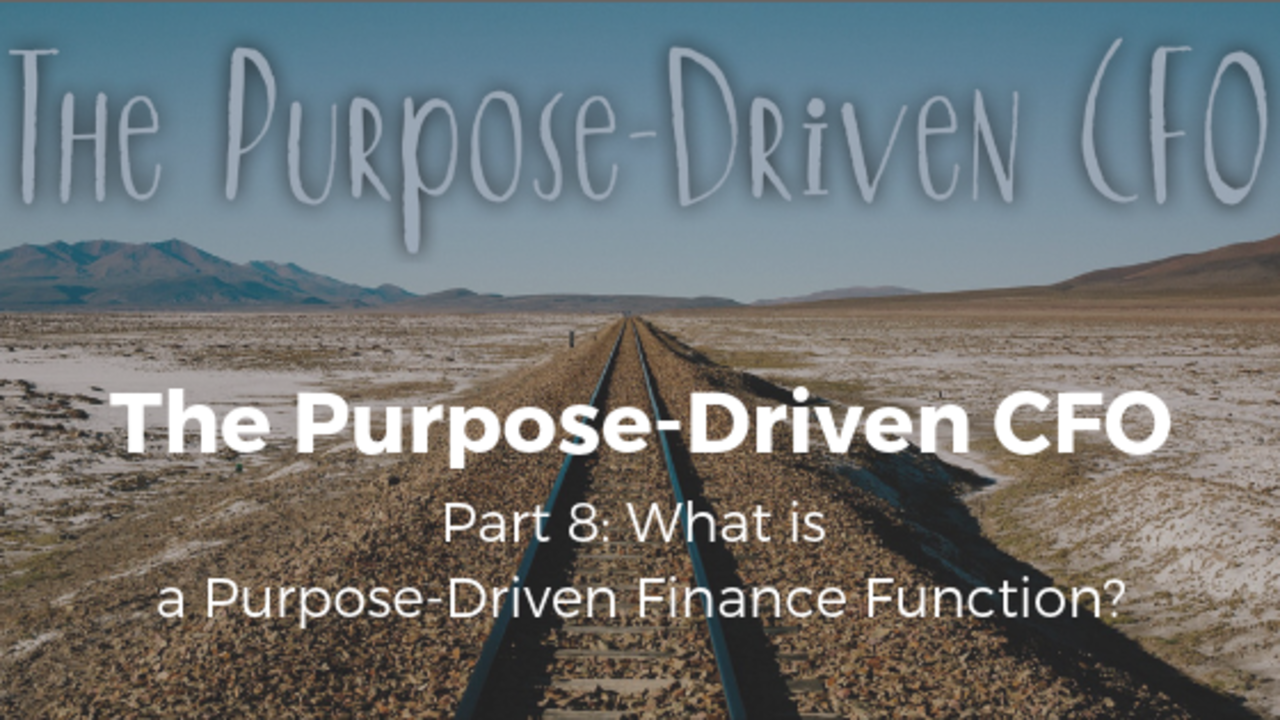
By Andy Burrows
[First published 27th June 2017]
[This article is also on LinkedIn - why not "Follow+" Andy and give the article a "like"?]
To date in this series, I’ve been picking activities that we do in the Finance function, and looking into why we do them. That’s the essence of my purpose-driven approach. We’ve worked through some big ones, like budgeting, strategy, reporting, projects and internal control (and others - the links to all previous parts in the series can be found at the end of the article).
What I’d like to do at this point in the series is to step back and take a look at the big picture. What does the Finance function exist for, if we were to sum it up? If we want to be “purpose-driven” in Finance, what does that mean? What is a purpose-driven Finance function?
Great Expectations
As a business grows, it employs Finance people in a variety of different capacities. Someone to do annual accounts filing and tax returns first of all (almost always outsourced to an...
The Purpose-Driven CFO Part 7: The Great Alternative to Analysis Paralysis
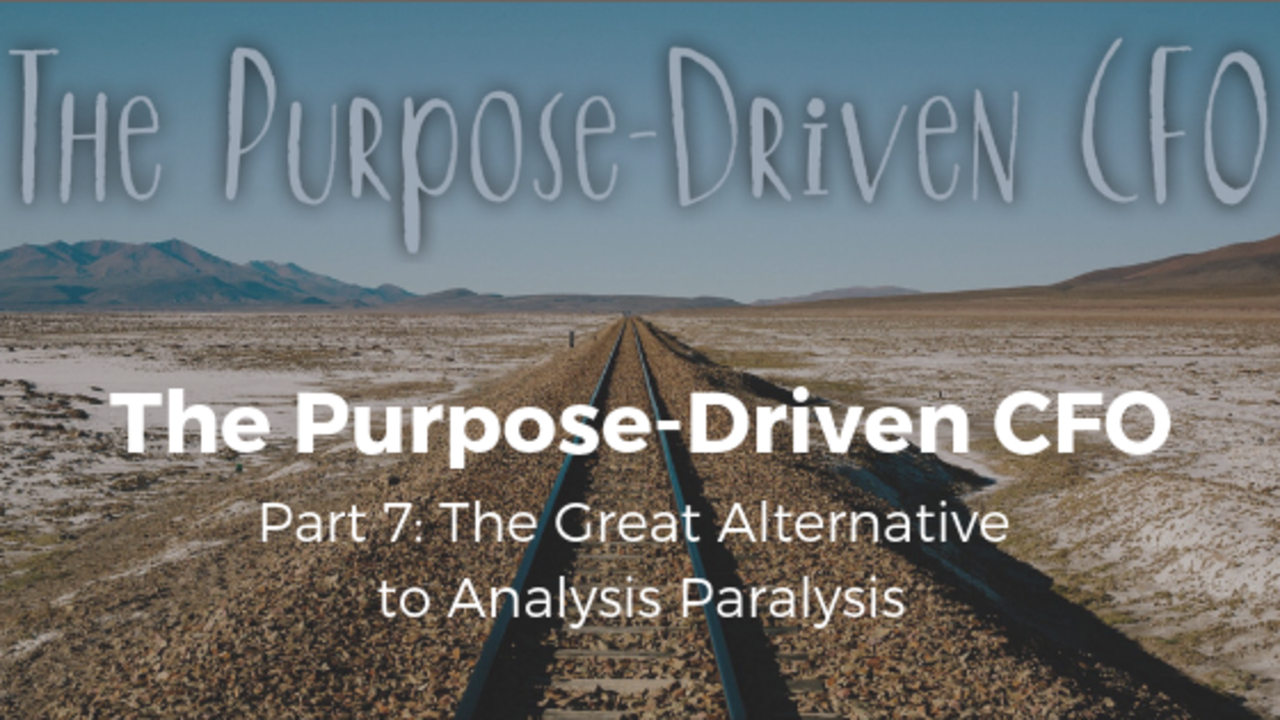
By Andy Burrows
[First published 21st April 2017]
[This article is also on LinkedIn - why not "Follow+" Andy and give the article a "like"?]
If you’ve seen the earlier articles in this series, you’ll know that I’ve been using what I’m calling a “purpose-driven” perspective to draw out useful insights into the work of the Finance function. My thesis is that being explicit about the reasons why we do things, not only boosts motivation and engagement within the team, but actually affects the way we do them. The introductory article that explains the thinking behind the approach.
So far, I’ve covered budgeting, strategy, reporting, projects and internal control.
This time round I want to take a look at why we do financial analysis.
What Do Analysts Do?
What is ‘financial analysis’? As I thought about that question as a starting point, it occurred to me that it’s difficult to define financial analysis in general terms. If I think about any of the analysis I’ve done, or my teams have...
The Purpose-Driven CFO Part 6: Internal Control is for Finance Business Partners Too
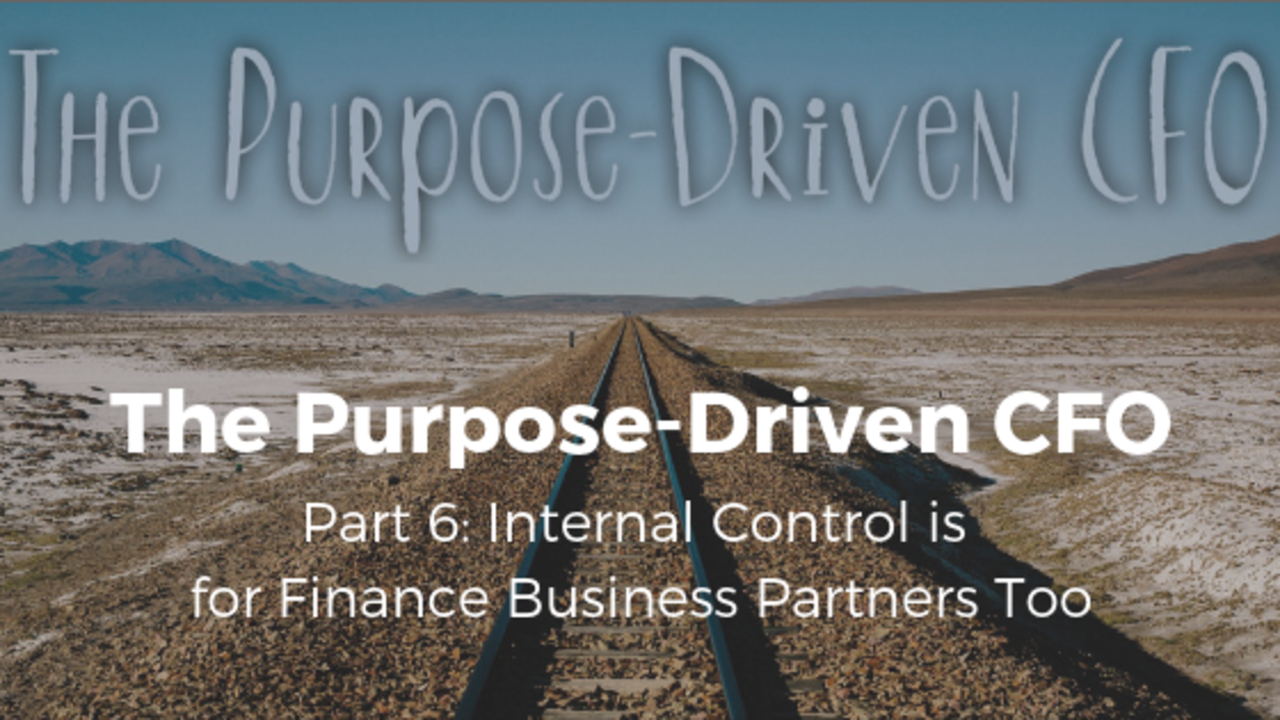
By Andy Burrows
[First published 15th April 2017]
[This article is also on LinkedIn - why not "Follow+" Andy and give the article a "like"?]
Internal control is often seen as a boring subject. It conjures up visions of bureaucracy, paperwork, inspection teams with checklists, things which slow the business down. But, as I have said elsewhere, “Saying that internal control is boring in business is like a train driver saying that tracks and signals are boring.”
Over the course of this series, I’ve been looking at activities within the remit of the CFO from what I’m calling a “purpose-driven” perspective. I’m trying to investigate whether examining, and being explicit about, the reasons why we do things, actually changes or influences the way we do them. If you haven't seen it already, please take a look at the introductory article that explains the thinking behind the approach: The Purpose-Driven CFO Part 1: Why Be Purpose-Driven. That, fittingly, tells you why I’m asking the ‘why’ q...
The Purpose-Driven CFO Part 5: Don’t Waste Money Doing Projects
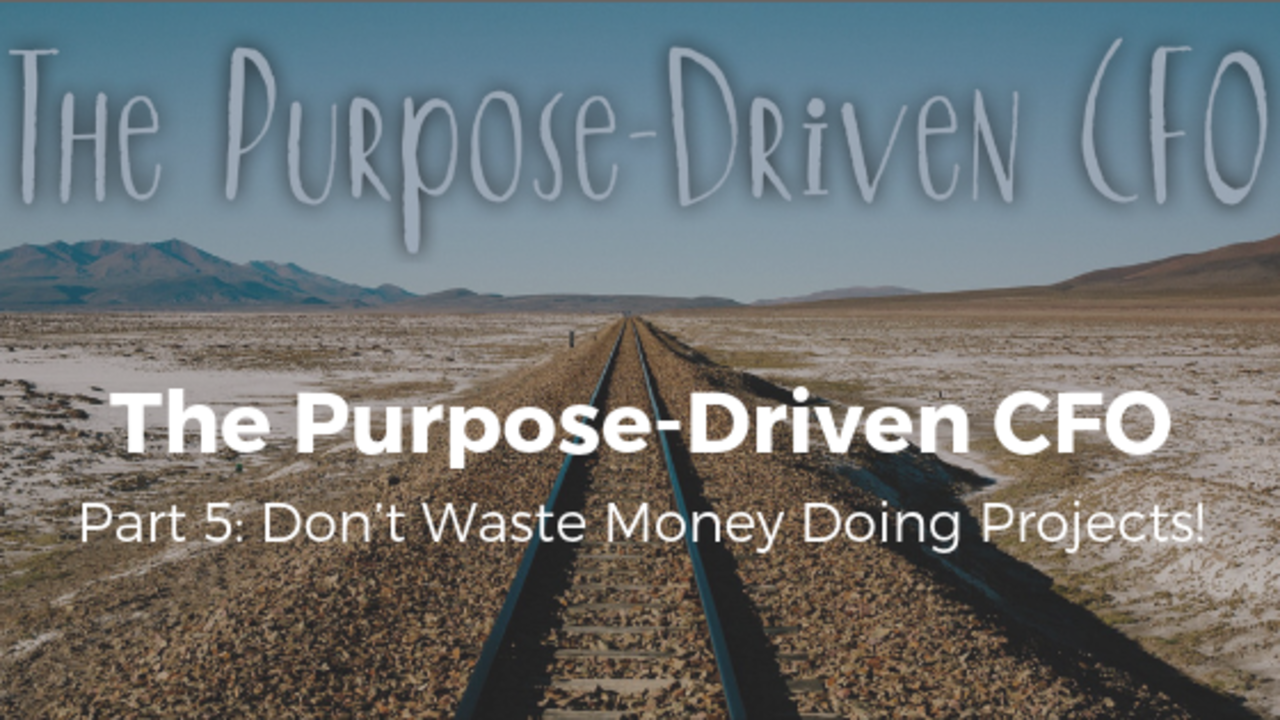
By Andy Burrow
[First published 21st March 2017]
[This article is also on LinkedIn - why not "Follow+" Andy and give the article a "like"?]
How can a purpose-driven approach help Finance managers and CFOs to prevent their businesses from wasting money on projects?
Over the course of this series, I’ve been looking at business Finance activities from what I’ve called a “purpose-driven” perspective. I have set out to investigate whether examining, and being explicit about, the reasons why we do things, actually changes or influences the way we do them. If you haven't seen it already, take a look at the introductory article that explains the thinking behind the approach: The Purpose-Driven CFO Part 1: Introduction. That, fittingly, tells you why I’m asking the ‘why’ questions!
I’ll give you the links to the other articles in the series at the end.
What is a Project For?
A project is, “an individual or collaborative enterprise that is carefully planned to achieve a particular aim.”
...The Purpose-Driven CFO Part 4: Financial Reporting for What?
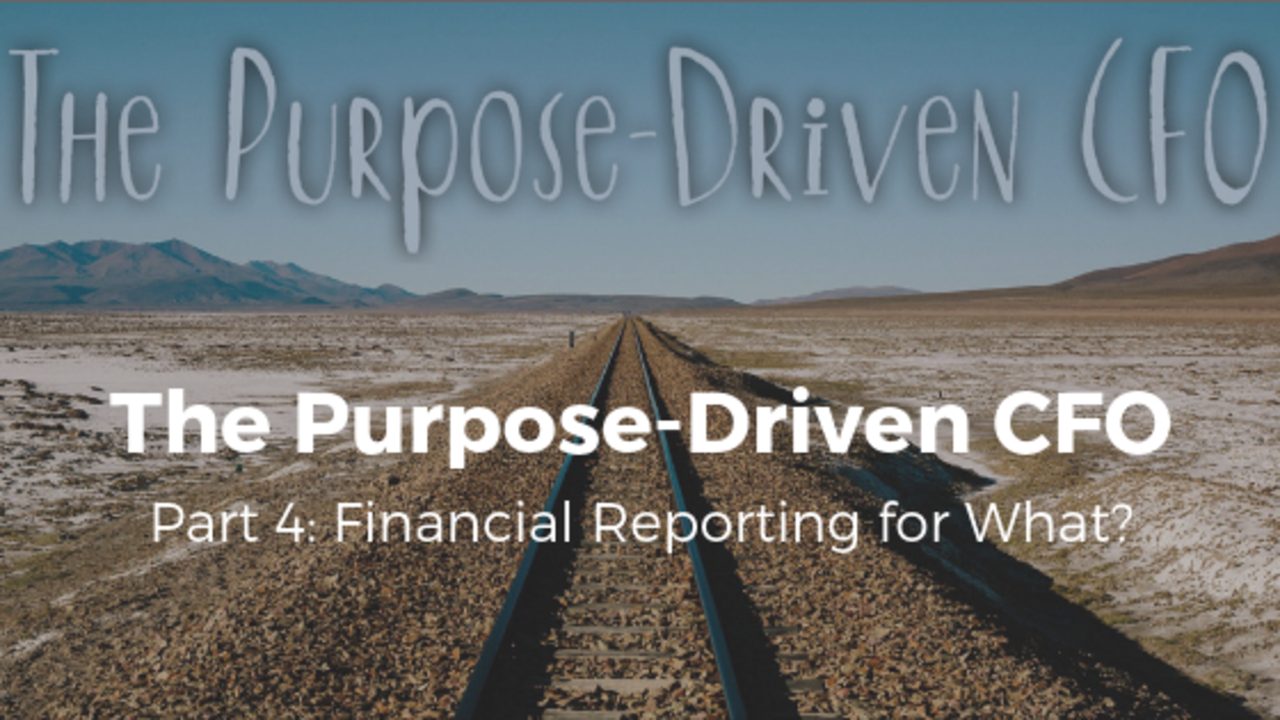
By Andy Burrows
[First published 6th March 2017]
[This article is also on LinkedIn - why not "Follow+" Andy and give the article a "like"?]
This is part of a series of articles looking at Finance activities, and basically asking 'why?' The premise is that understanding why we do things helps us to do them better. It may even fundamentally change the way that we do them. If you haven't seen it already, take a look at the introductory article that explains the approach I'm taking: The Purpose-Driven CFO Part 1: Why be Purpose-Driven?
I’ll give you the links to the other articles in the series at the end.
What Do You Mean, “Why”?
Of all the areas of activity in Finance, the one that is probably most taken for granted (aside from transactional activities such as invoicing and Accounts Payable) is Financial Reporting. I’m guessing that even asking the question, “why do we do financial reporting?”, would get quizzical looks. What do I mean, why? It’s just something we do. If we didn’t ...
The Purpose-Driven CFO Part 3: Purpose-Driven Strategy
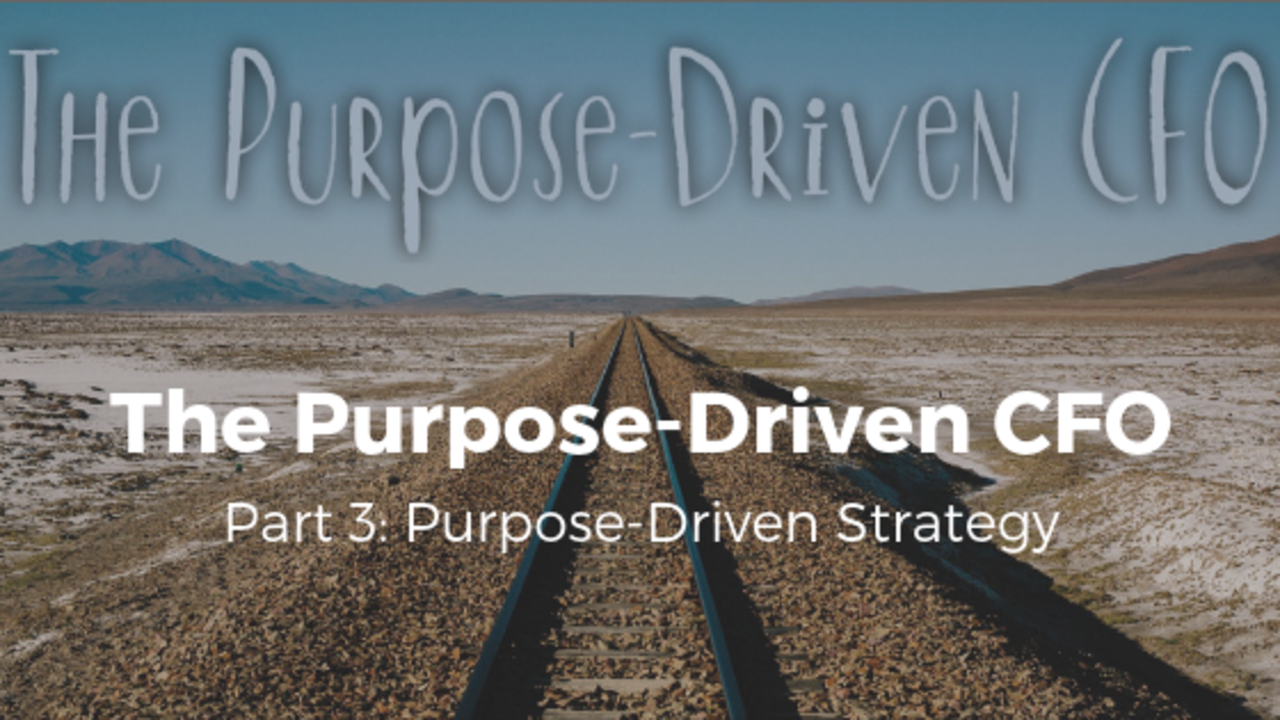
By Andy Burrows
[First published 21 February 2018]
[This article is also on LinkedIn - why not "Follow+" Andy and give the article a "like"?]
This is part of a series of articles looking at Finance activities, and basically asking 'why?' The premise is that understanding why we do things helps us to do them better. It may even fundamentally change the way that we do them. If you haven't seen it already, take a look at the introductory article that explains the approach I'm taking: The Purpose-Driven CFO Part 1: Introduction
Why Does Strategy Come Under the CFO?
I guess the first question that might spring to mind is why consideration of strategy falls into a series about Finance. To some, Finance is still the bean counting, number crunching, function. And to them, the CFO is still the chief beancounter. These people don’t see Finance as having anything to do with business strategy. They see Finance as the people who count the pennies spent and pennies received, and tell the board ...
The Purpose-Driven CFO Part 2: Is it Time to Bin the Budget?
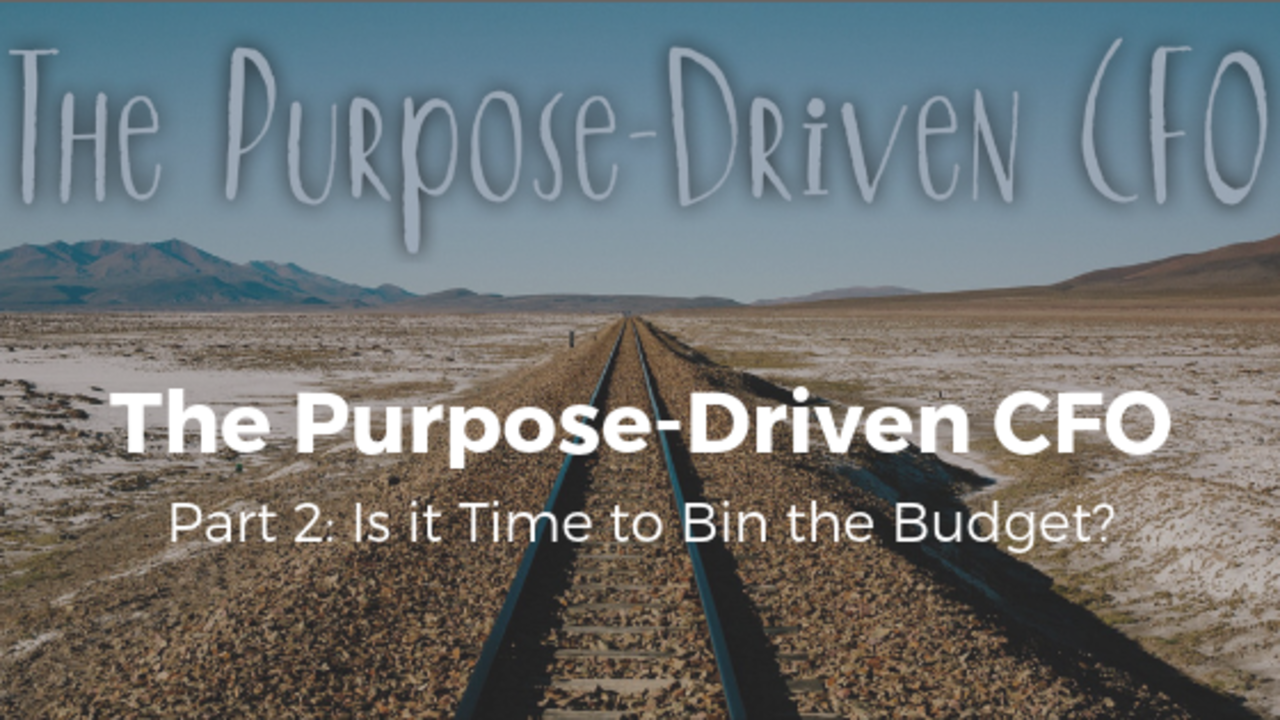
By Andy Burrows
[First published 9 February 2017]
[This article is also on LinkedIn - why not "Follow+" Andy and give the article a "like"?]
This is part of a series of articles looking at Finance activities, and basically asking 'why?' The premise is that understanding why we do things helps us to do them better. It may even fundamentally change the way that we do them. If you haven't seen it already, take a look at the introductory article that explains the approach I'm taking: The Purpose-Driven CFO Part 1: Introduction
The Budget – What’s it for?
In this second article in my series on Purpose-Driven Finance, I want to focus on one of the most widespread headaches that the CFO has to manage – the budget.
Of all the energy-sapping, life-draining, activities in Finance, the annual budget process seems to be the most hated. In almost every big business I’ve worked with, anyone involved in the annual budget process has had complaints about it. And the accountants, by the end of th...




